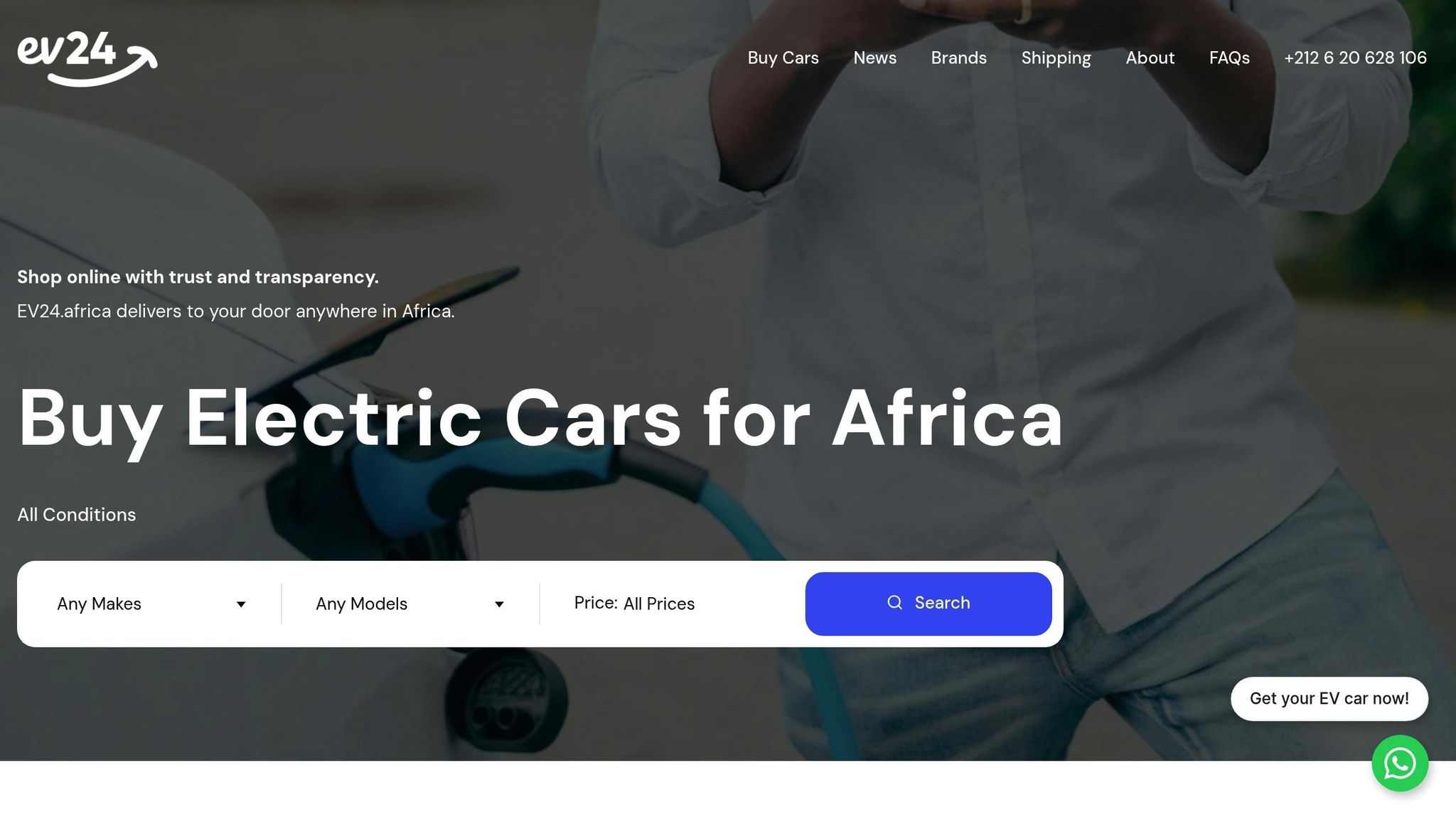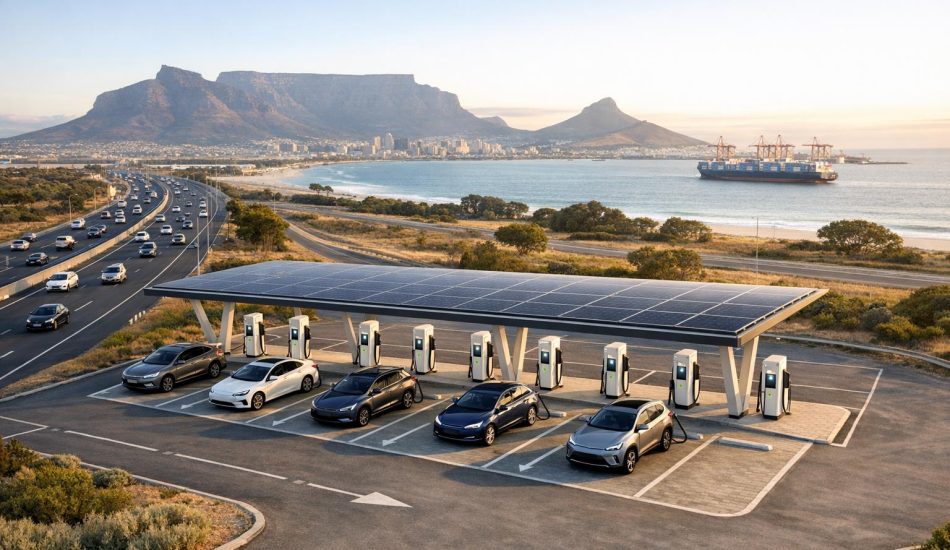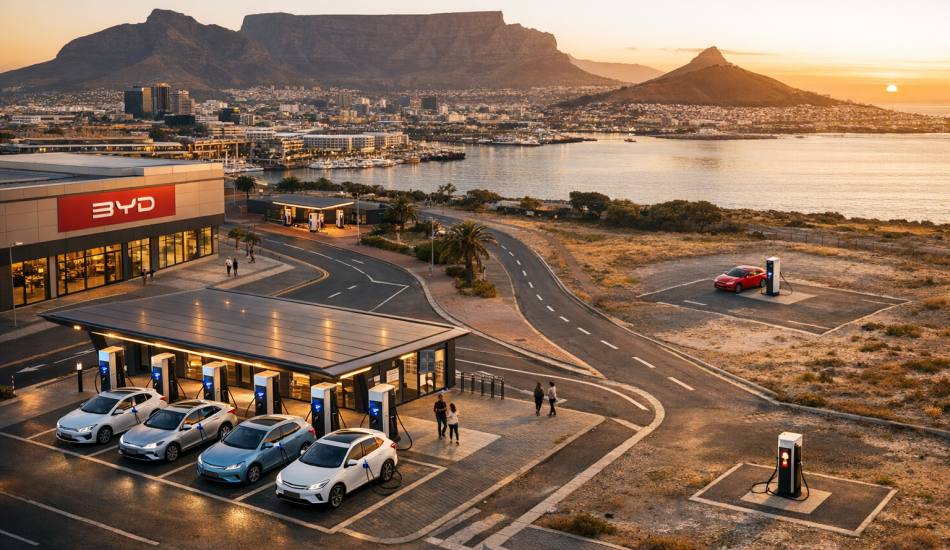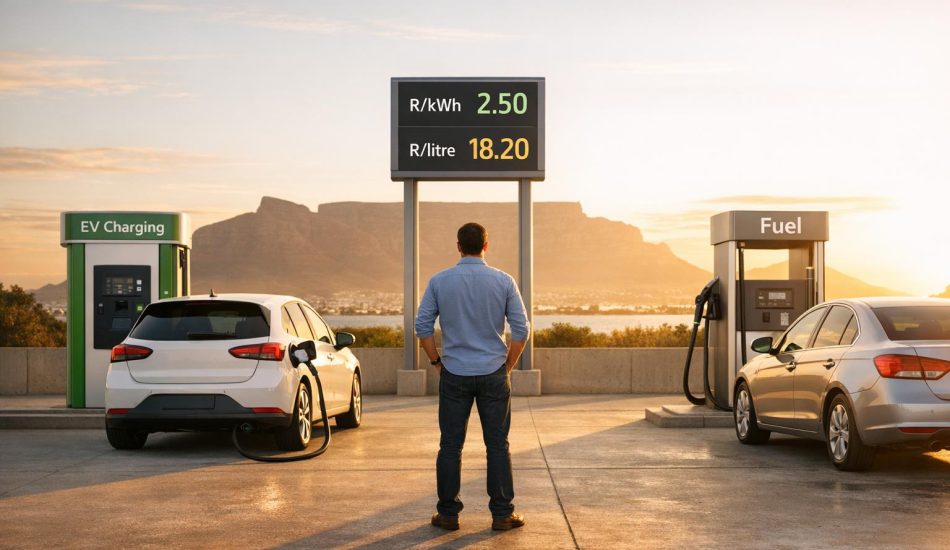
Djibouti’s 2025 EV import regulations aim to simplify the shift to electric vehicles while ensuring compliance with safety and environmental standards. Here’s what you need to know:
- Eligibility: Only left-hand drive EVs manufactured in 2017 or later are allowed. LPG-powered vehicles are prohibited.
- Battery Safety: EVs must meet strict safety requirements for their battery systems, including detailed documentation from manufacturers.
- Costs: Import duties include a 10% domestic consumption tax and 10% VAT, calculated using the CIF method (vehicle price + shipping costs). Additional fees like port handling and insurance also apply.
- Required Documents: Key paperwork includes a purchase invoice, certificate of conformity, customs clearance, and proof of VAT payment.
- Process: Notify customs before shipment, ensure compliance with international shipping rules for lithium-ion batteries, and hire experienced logistics partners to streamline customs clearance.
- Registration: After customs, register your EV locally with proof of purchase, customs clearance, and insurance.
EV Import Eligibility and Vehicle Requirements
If you’re planning to import an electric vehicle (EV) into Djibouti, there are specific eligibility criteria and technical requirements you need to know. These rules are designed to ensure safety, compatibility with local infrastructure, and adherence to regulatory standards.
Vehicle Type and Specifications
Djibouti’s EV import regulations for 2025 outline clear standards for vehicle eligibility. Only left-hand drive vehicles are allowed, as they align with the country’s traffic rules and road design.
Additionally, imported vehicles must be under 8 years old, determined by their Vehicle Identification Number (VIN). For imports in 2025, this means only vehicles manufactured in 2017 or later are eligible. It’s also important to note that vehicles powered by LPG are not permitted for import.
Now, let’s look at the requirements surrounding battery safety, one of the most critical aspects of EV compliance.
Battery Safety and Compliance Standards
Battery safety is a top priority when it comes to importing EVs. Every imported vehicle must meet stringent performance standards for its Rechargeable Electrical Energy Storage System (REESS). This system includes not only the battery itself but also related components like thermal management systems, electronic controls, physical supports, and protective casings.
Modern EVs often incorporate advanced, AI-driven battery management systems to enhance both safety and performance. To meet Djibouti’s requirements, manufacturers must provide detailed documentation outlining potential risks, mitigation strategies, and any necessary safety warnings related to the battery.
Required Documentation and Labeling
Once the vehicle and battery meet the necessary standards, proper documentation is essential for compliance. This includes verifying the vehicle’s age and confirming its electric propulsion system.
For electrical components, manufacturers may need to adhere to RoHS (Restriction of Hazardous Substances) principles. This involves submitting compliance assessments, test reports, and material declarations to prove that hazardous substance limits are within acceptable ranges.
In addition, a Declaration of Conformity (DoC) is required. This document confirms that the vehicle meets all applicable standards and must include detailed information about the product, the manufacturer, and any restricted substances. Customs officials may request the DoC during the clearance process.
EV Import Process: Step-by-Step Procedures
Once your electric vehicle (EV) meets all the necessary eligibility requirements and you’ve gathered the required paperwork, you can start the import process. This involves several key stages to ensure everything goes as planned.
Pre-Shipment Preparation
Before your EV leaves its country of origin, there are a few important tasks to handle. First, inform Djibouti customs authorities ahead of time about your shipment. This advance notice helps speed up the clearance process when your vehicle reaches the Port of Djibouti.
Since EVs are equipped with lithium-ion batteries, they must comply with International Maritime Organization (IMO) regulations for dangerous goods. It’s crucial to work with a shipping company experienced in transporting electric vehicles and familiar with these safety protocols.
The Port of Djibouti is the main entry point for vehicle imports, not just for Djibouti but also for nearby landlocked nations like Ethiopia. As a busy hub, the port has established procedures for efficiently handling electric vehicles.
Required Import Documents
Having the right documents ready is essential to avoid customs delays. Djibouti’s revenue authority requires a specific set of paperwork for vehicle imports, and any missing or incorrect documents can cause significant setbacks.
Here’s what you’ll need:
- Vehicle Purchase Invoice: Proof of purchase.
- Certificate of Conformity: Verifies that the vehicle meets international and local standards.
- Original Registration Documents: Confirms the vehicle’s history and ownership.
- Bill of Lading: Includes details such as the chassis number, engine or motor specifications, year of manufacture, and the vehicle’s brand, make, and model.
- Evidence of VAT Payment: Required for non-exempt imports.
- Import Declaration: Describes the goods being imported.
- Export Declaration: Provides details about the value and origin of the goods.
- Certificate of Origin: Confirms the country where the vehicle was manufactured.
- Commercial Invoice: Lists the vehicle’s specifications, quantities, and agreed prices.
Ensure the country of origin is clearly indicated on the invoice. Depending on your situation, you may also need an Arab British Certificate of Origin or an EC Certificate of Origin. Additionally, a valid driver’s license and international insurance are required for customs clearance.
Once you’ve gathered all the necessary documents, you’re ready to move on to shipping and customs clearance.
Shipping and Customs Clearance
With eligibility confirmed and documentation in order, the next step is arranging shipping and navigating customs clearance. This process typically takes 30–45 days, depending on shipping routes, customs workload, and the accuracy of your paperwork.
During transit, your EV will be handled according to IMO regulations to ensure the safe transportation of its battery system. A reliable shipping company will manage all necessary approvals, ensuring compliance with safety requirements. Working with an experienced logistics provider can help ensure smooth customs handling and timely delivery.
When your EV arrives at the Port of Djibouti, customs clearance begins. As a major trade hub in the Horn of Africa, the port manages large volumes of cargo. However, importers should be prepared for potential challenges, such as bureaucratic delays or varying interpretations of regulations.
To simplify the process, consider hiring a licensed customs broker. These professionals are familiar with local procedures and can help navigate any complications. Companies like EV24.africa offer comprehensive import services, including customs clearance, registration, and handling import taxes. They also adhere to international commercial terms (Incoterms) and provide both door-to-door and port-to-port delivery options.
Maintaining open communication with customs officials is key to avoiding unnecessary delays. Stay informed about any updates to regulations or tariffs, as these can impact your timeline and costs. Partnering with trusted logistics companies and brokers with solid reputations can make the entire process much smoother.
Once customs clearance is complete and all duties and taxes are paid, your EV will be released for final delivery. While the process requires careful attention to detail, proper preparation and the right professional support can make importing your EV a much easier experience.
EV Import Costs, Taxes, and Fees for Djibouti
If you’re planning to import an electric vehicle (EV) into Djibouti, getting a clear picture of the costs involved is key to managing your budget. The expenses can vary depending on whether you’re bringing in a brand-new EV or a used one.
Import Duties and Customs Fees
Djibouti uses the CIF (Cost, Insurance, and Freight) method to calculate import duties and taxes. This means the charges are based on the total value of the vehicle, including shipping costs. According to Djibouti’s Finance Law 2025, EVs intended for domestic use are subject to a 10% domestic consumption tax and a 10% VAT. These taxes are applied to the assessed value of the vehicle, which includes both the car’s price and shipping costs. For instance, new EVs typically have higher assessed values, leading to higher duty payments. To avoid surprises, using an import duty calculator can help you estimate these costs accurately.
Additional Costs to Consider
Apart from the standard taxes and duties, there are other fees that can add to your total import bill. These may include environmental levies, excise duties, and port handling fees, which cover unloading, storage, and processing at the port in Djibouti. Shipping costs can also fluctuate based on global market conditions, fuel prices, and seasonal demand. Additionally, insuring your EV during transit is mandatory. Currency exchange rates can further impact your overall expenses, especially if payments involve foreign currencies. When comparing the costs of new versus used EVs, it’s crucial to account for these extra charges.
Cost Comparison: New vs. Used EVs
The total cost of importing an EV can vary significantly between new and used models. New EVs often come with manufacturer warranties and the latest technology, but their higher assessed values typically result in steeper import duties. On the other hand, used EVs can offer substantial savings. For example, recent data indicates that 34% of used EVs are priced under $25,000, and 55% fall below $30,000. In comparison, only 11% of used gasoline cars are priced under $20,000. Additionally, 72% of used EVs are from the past five years, with 45% from 2023 or later. While used EVs can lower upfront costs, it’s important to evaluate factors like battery health and any remaining warranty coverage.
For detailed advice on the current tax regulations and to ensure you’re fully informed, consider consulting a KPMG tax professional in West Africa or a local tax expert. Their guidance can help you navigate the complexities of EV import costs in Djibouti.
sbb-itb-99e19e3
EV Licensing and Registration in Djibouti
After clearing customs and paying the necessary fees, the next step is to register your electric vehicle (EV) with Djibouti’s authorities. The Djibouti Revenue Authority requires you to complete the registration process and obtain local insurance, using the documents provided during customs clearance. This ensures your EV is fully licensed and road-ready.
Registration Process Overview
To register your EV, you’ll need to present your customs clearance certificate along with other required documents. Once the local vehicle registration office reviews and approves your paperwork, they will issue a registration certificate. Securing local insurance is also a key part of this process.
Licensing Requirements
Licensing your EV for road use involves meeting all local regulations. This includes completing the registration process, maintaining current documentation, and ensuring you have a valid insurance policy.
Licensing and Registration Checklist
Here’s a handy checklist to make sure you’ve got everything covered:
| Document/Requirement | Purpose | Notes |
|---|---|---|
| Customs clearance certificate | Confirms import duties have been paid | Original document required |
| Proof of purchase | Establishes ownership of the vehicle | Invoice or bill of sale |
| Valid identification | Verifies your identity | Passport or national ID |
| Local insurance policy | Required for registration | Must be obtained during the process |
If this process feels overwhelming, working with experienced service providers can make it easier. For example, EV24.africa offers assistance with customs clearance and registration, ensuring your paperwork is complete and properly submitted. This can save you time and simplify interactions with government offices.
Key Points for Successful EV Import to Djibouti
Importing an electric vehicle (EV) to Djibouti requires attention to detail, especially when it comes to regulations and paperwork. Understanding the essentials can help you sidestep common issues and make the process as smooth as possible. Here’s what you need to know to get started.
Why Following Regulations Matters
Sticking to Djibouti’s EV import regulations isn’t just a suggestion – it’s a must. The government enforces these rules through agencies like the Ministry of Trade and Tourism, Djibouti Ports and Free Zones Authority, and the Customs Authority. Ignoring these guidelines can lead to fines, delays, or even suspension of your import license.
Having your paperwork in order is vital. Double-check all required documents to ensure they meet the regulatory standards discussed earlier.
Budgeting is another key factor. Costs like customs duties, shipping, insurance, and registration can sneak up on you, significantly increasing the total expense. Planning for these fees in advance can save you from unpleasant surprises.
Building connections with local customs and logistics professionals can also be a game-changer. Working with experts or legal advisors familiar with Djibouti’s trade laws can help you navigate the process more efficiently and avoid costly mistakes.
Using EV24.africa for EV Imports

Navigating the complexities of EV importation can be challenging, but platforms like EV24.africa are designed to make it easier. They offer a range of services to handle regulatory requirements, simplifying the entire process for you. Plus, their transparent pricing allows you to plan your budget with confidence.
EV24.africa’s delivery network spans all 54 African countries, including Djibouti, and their expertise in regional import requirements ensures that your shipment meets all necessary standards. This means fewer delays and a reduced risk of unexpected fees.
The platform takes care of customs clearance and vehicle registration, easing the burden on you. They also offer financing options to help manage upfront costs. With detailed vehicle specifications and clear pricing, you’ll have a better handle on your budget. Their support doesn’t stop there – their expert team guides you through every step, from purchasing your EV to completing its registration in Djibouti.
FAQs
What safety standards do EV batteries need to meet when importing to Djibouti, and how can I ensure they comply?
EV Battery Safety Standards for Importing to Djibouti
When bringing EV batteries into Djibouti, strict safety rules are in place to reduce risks and ensure the batteries perform reliably. These regulations align with global guidelines, covering key areas like fire prevention, chemical handling, and electrical safety, especially for high-voltage systems and hazardous materials.
To comply with these standards, it’s essential to:
- Ensure the batteries carry recognized international safety certifications.
- Perform detailed safety inspections before shipping.
- Use certified methods for shipping and handling.
Partnering with manufacturers or suppliers who adhere to these standards can make the process smoother, helping you avoid delays or fines during importation.
What are the steps to calculate the total cost of importing an electric vehicle to Djibouti, including taxes and fees?
To figure out the total cost of bringing an electric vehicle into Djibouti in 2025, start with the vehicle’s purchase price. Then, factor in customs duties, VAT, and any other relevant import taxes. Since these rates can change, it’s a good idea to review Djibouti’s latest customs regulations to get the most up-to-date information.
You’ll also need to account for extra expenses like documentation fees, licensing costs, and possible charges such as environmental or registration fees. These specifics should be included in Djibouti’s 2025 import guidelines. For a more precise estimate, it’s worth consulting an expert or using a trusted duties calculator to determine the full cost.
What do I need to do to ensure my electric vehicle (EV) clears customs smoothly in Djibouti?
To make the customs clearance process for your EV import into Djibouti as smooth as possible, it’s crucial to have all the required documents in order. These usually include an import license, a trade sanctions license, and a pre-shipment inspection certificate. Double-check that your paperwork is accurate and submitted on time to steer clear of unnecessary delays.
Once your EV arrives, ensure it’s inspected and cleared by customs without delay. Collaborating with customs officials and adhering to local regulations can significantly simplify the process. Being well-prepared and detail-oriented will go a long way in ensuring everything goes off without a hitch.




